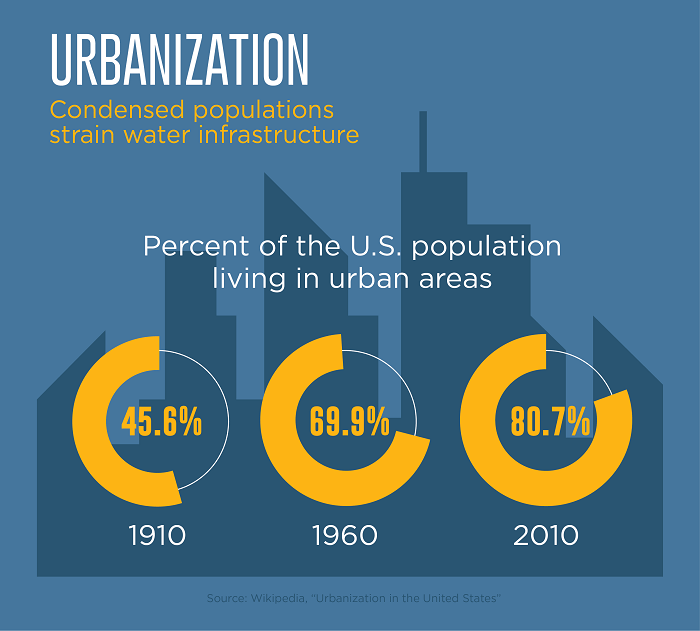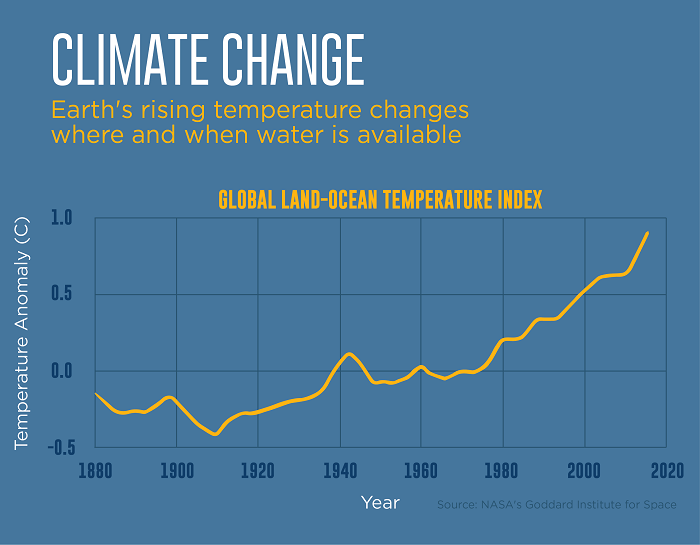World Water Day 2019: How can you make an impact?
Each year on March 22 the United Nations recognizes World Water Day, and each year we are reminded of the importance of water in our daily lives, its scarcity across the world, and the impact we can have on our most precious resource.
World Water Day is centered on Goal 6 of the UN’s Sustainable Development Goals which seeks to “ensure access to water and sanitation for all” by 2030. Now, in 2019, we have 11 years to determine how to get the billions of people currently living without safe water in their communities, workplaces, and homes access to clean water and sanitation services. Currently, according to the UN, over two billion people’s access to fresh water is at risk and, “by 2050, at least one in four people is likely to live in a country affected by chronic or recurring shortages of fresh water.”
Making progress, but still have a long way to go
There have been advancements in availability of drinking water sources over the past decade, but there is more to be done. Issues such as “Day Zero” in Cape Town, South Africa and the water crisis in Flint, Michigan, continue across the globe as population density puts a strain on water infrastructure.

Increased investment in local management of freshwater resources and sanitation is required across many parts of the world. Continued education about the disproportionate effects on marginalized groups when it comes to safe, clean water, is crucial to creating change in this space.
How can you help?
It is vital that we actively decide to learn, share, and act when it comes to this water crisis:
- Learn about the impacts a lack of safe drinking water can have on individuals and communities through the UN’s curated collection of stories
- Utilize resources from your local water utility and government to learn more about you and your community’s exposure and impact, and how you can help (City of Chicago – Water Management)
- Take steps to decrease your individual water use and increase conservation:
- Use low-flow appliances
- Drink tap water, as tap water is held to higher quality standards than bottled water, and supports your local water utility provider
- Increase the use of natural vegetation in landscaping
- Support local politicians and nonprofit organizations that advocate for water stewardship
- Organize an event or activity that gathers your friends and community around the water crisis topic to share ideas and continue to learn
Support from local breweries
West Monroe will be gathering next week to continue this conversation and learn about the use and conservation of water in the brewing industry. Our team will discuss how local breweries are tackling the need for water conservation in an industry that requires an abundance of water for production.
Among significant climate impacts such as droughts affecting crop production and conservation mandates limiting water access, related laws and social standards have encouraged innovation in brewing efficiency standards and a new lens of sustainability.

Breweries across the country have begun leveraging processes such as advanced filtration systems to reduce water loss, wastewater treatment facilities to enable recycled water use, and advanced metering infrastructure (AMI) to detect leaks. As large brewing companies leverage their global reach and extensive resources to create a larger industry trend, they stand to make a worldwide agricultural and operational impact by seeking sustainability in business growth and environmental security.

